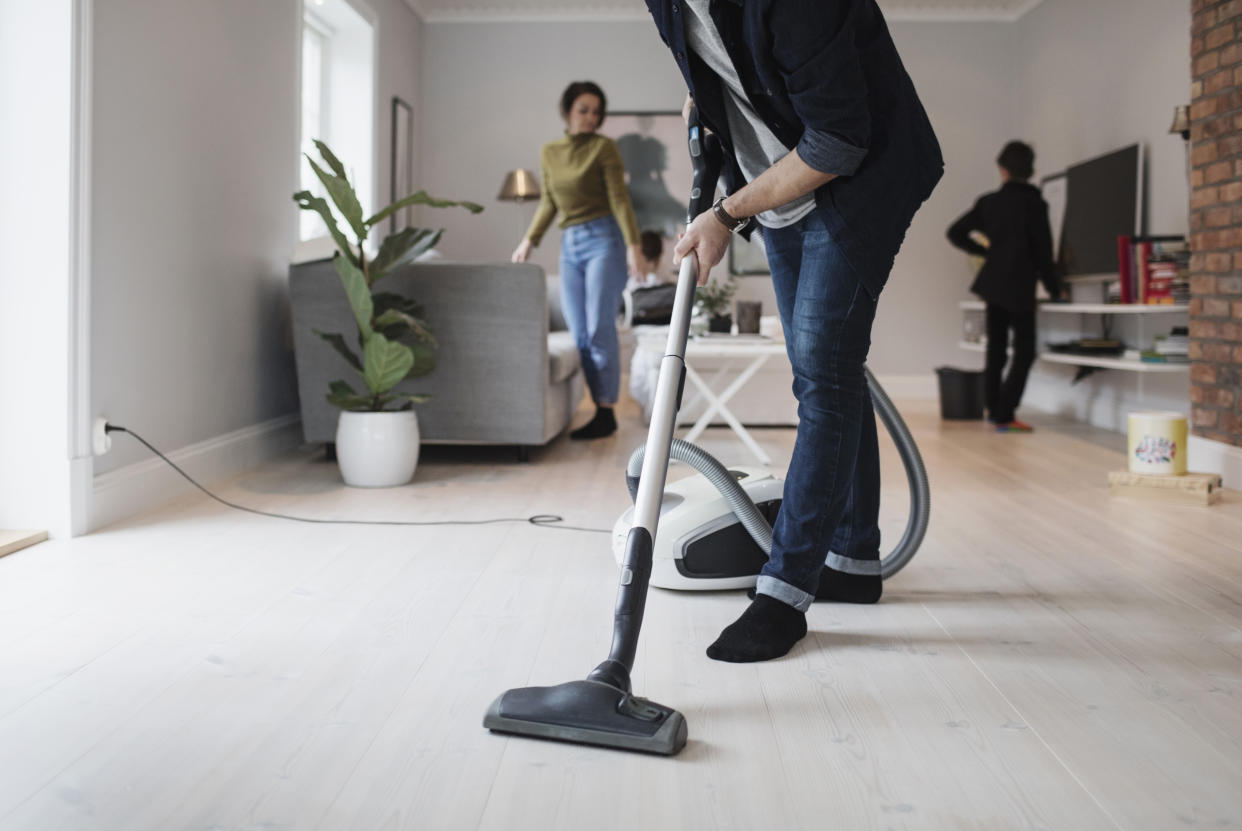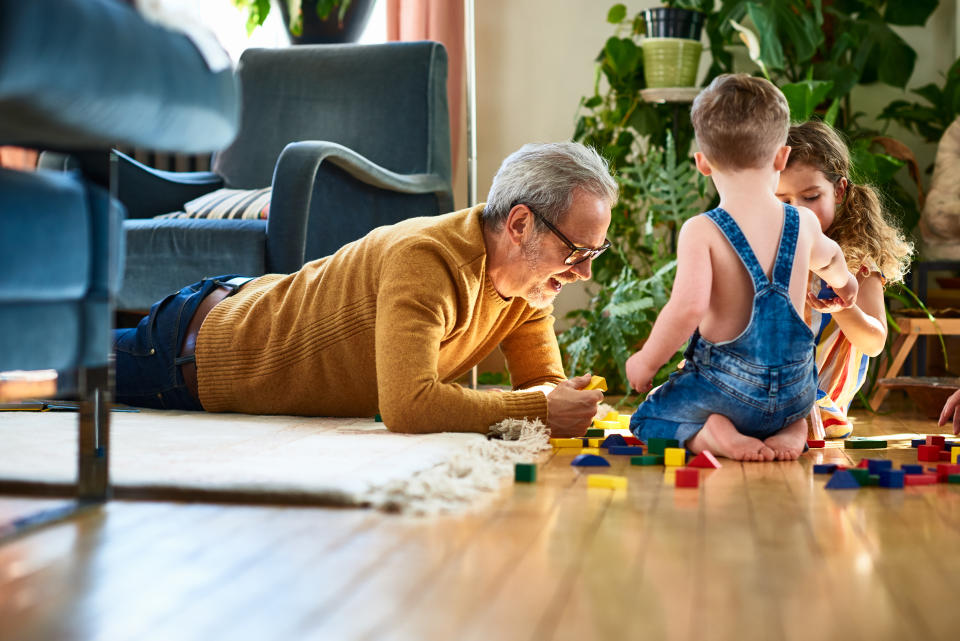Men are doing more chores and more childcare during lockdown – but it's still less than women

Men are taking on more responsibilities during the coronavirus lockdown, including childcare and general chores – but are still doing less than women, new figures suggest.
The survey from the Office for National Statistics (ONS) found that men had increased their unpaid labour, such as caring for children or adults, housework and volunteering, by 22 minutes to two hours and 25 minutes a day.
But while women's burden was reduced by 20 minutes a day, to three hours and 32 minutes, they are still giving an hour and seven minutes more of their time than men.
The ONS said this had led to the gap in unpaid work between men and women shrinking from one hour and 50 minutes a day to one hour and seven minutes a day.

Individuals living with children have spent 35% longer on average providing childcare, including helping out with homework.
Men have increased their amount of childcare by 58%, but are still undertaking 15 minutes a day less unpaid childcare than women.
This was highly dependent on the age of the child, with women spending four hours and five minutes caring for a child under eight, compared with men’s two hours and 50 minutes.
The Time Use survey compared data from 28 March to 26 April with figures from the previous study between April 2014 and December 2015.
Before the lockdown, the gap in unpaid work between men and women was an hour and 50 minutes.
People over 60, such as grandparents, are now providing an average of an hour and 44 minutes less childcare a week on average as a result of shielding and social distancing measures.
Those without children, such as friends or extended family members, reduced their caring by an hour and 13 minutes a week.
The study also found that people with low household incomes have been spending more time doing paid work since the lockdown began.
Those with monthly household incomes up to £1,700 have spent an extra 21 minutes a day on average doing paid work, compared with a drop of around 32 minutes for those on monthly incomes of £1,700 to £3,300.

The ONS said the increase in working time for people on low household incomes could be because they are more likely to be in jobs that cannot be done from home and have had to continue going into work during the lockdown.
Households earning up to £1,700 per month after tax were working the same amount outside the home as they were five years ago, while higher-income households were more likely to have switched to home working.
Gueorguie Vassilev of the ONS said: "These new findings show that not all households are experiencing the impacts of the coronavirus pandemic in the same way.

"It will be interesting to see if time use reverts to a pre-pandemic pattern after this crisis is over, or if some changes will be lasting ones.”
The ONS figures also suggest those on lower incomes were less likely to have seen an increase in free time since the lockdown began.
Overall, adults are spending an average of two hours and 53 minutes a day watching TV or streaming videos, 28 minutes reading, 26 minutes playing games, including computer games, and 16 minutes contacting friends and family by phone or messaging services.
Coronavirus: what happened today
Click here to sign up to the latest news, advice and information with our daily Catch-up newsletter
Read more about COVID-19
How to get a coronavirus test if you have symptoms
What you can and can’t do under lockdown rules
In pictures: How UK school classrooms could look in new normal
How public transport could look after lockdown
How our public spaces will change in the future
Help and advice
Read the full list of official FAQs here
10 tips from the NHS to help deal with anxiety
What to do if you think you have symptoms
How to get help if you've been furloughed

 Yahoo News
Yahoo News 


